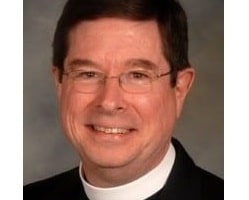The following is a daily meditation from the Center for Action and Contemplation. I know
many parishioners of St. Paul’s subscribe to these daily meditations, and I encourage you to sign
up as well on https://cac.org. They are very worthwhile.
The following was a recent meditation by Barbara Holmes that I thought would be worth sharing in this Hope for the Journey weekly offering.
When Crisis Comes
Living in a transitional age such as ours is scary: things are falling apart, the future is unknowable, so much doesn’t cohere or make sense. We can’t seem to put order to it. This is the postmodern panic. It lies beneath most of our cynicism, our anxiety, and our aggression. Yet, there is little in the biblical revelation that ever promised us an ordered universe. The whole Bible is about meeting God in the actual, in the incarnate moment, in the scandal of particularity. It is rather amazing that we ever tried to codify and control the whole thing.
Chaos often precedes great creativity, and faith precedes great leaps into new knowledge. The pattern of transformation begins in order, but it very quickly yields to disorder and—if we stay with it long enough in love—eventual reordering. Our uncertainty is the doorway into mystery, the doorway into surrender, the path to God that Jesus called “faith.” In her work on “crisis contemplation,” CAC teacher Barbara Holmes confirms what we and others have long suspected—that great suffering and great love are the two universal paths of transformation. Both are the ultimate crises for the human ego. Barbara writes:
The crisis begins without warning, shatters our assumptions about the way the world works, and changes our story and the stories of our neighbors. The reality that was so familiar to us is gone suddenly, and we don’t know what is happening. . . .
If life, as we experience it, is a fragile crystal orb that holds our daily routines and dreams of order and stability, then sudden and catastrophic crises shatter this illusion of normalcy. . . . I am referring to oppression, violence, pandemics, abuses of power, or natural disasters and planetary disturbances. . . .
We can identity three common elements in every crisis: The event is usually unexpected, the person or community is unprepared, and there is nothing that anyone could do to stop it from happening. Even if there are signs everywhere that something is not right, we tend to ignore the warnings and the signposts. Not even sky writing, or messengers from other worlds, would be able to shift our gaze from the comfort of our daily routines. Thus, the slave catchers, the roundups for native removal, the pandemics, devastating hurricanes, and volcanic eruptions catch us off guard. . . .
When the unexpected happens during a communal crisis, we are not alone. We are with friends and neighboring villagers, and we all experience the same break in reality. Bereft of words, all of us hold the same question: How could this be happening? . . .
I consider crisis contemplation to be an aspect of disorder that prepares communities for a leap toward the future. This is a leap toward our beginnings. We are not just organisms functioning on a biological level; our sphere of being also includes stardust and consciousness. We all have a spark of divinity within, a flicker of Holy Fire that can be diminished, but never extinguished.
References:
Adapted from Richard Rohr, The Wisdom Pattern: Order, Disorder, Reorder (Franciscan Media: 2020), 15–16.
Barbara A. Holmes, Crisis Contemplation: Healing the Wounded Village (CAC Publishing: 2021), 19–20, 21, 124.
Prayer for Our Community
Loving God, you fill all things with a fullness and hope that we can never comprehend. Thank you for leading us into a time where more of reality is being unveiled for us all to see. We pray that you will take away our natural temptation for cynicism, denial, fear and despair. Help us have the courage to awaken to greater truth, greater humility, and greater care for one another. May we place our hope in what matters and what lasts, trusting in your eternal presence and love. Listen to our hearts’ longings for the healing of our suffering world. Please add your own intentions . . . Knowing, good God, you are hearing us better than we are speaking, we offer these prayers in all the holy names of God. Amen.


